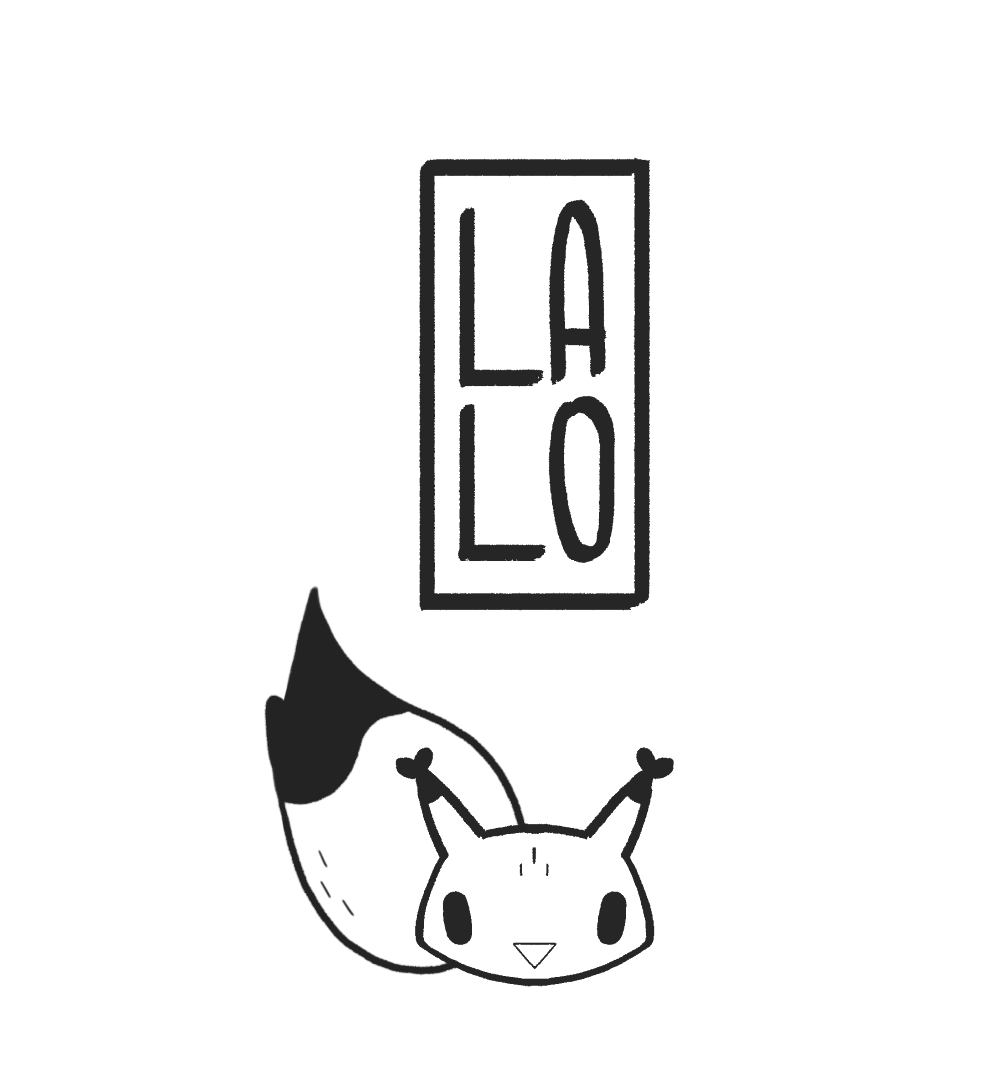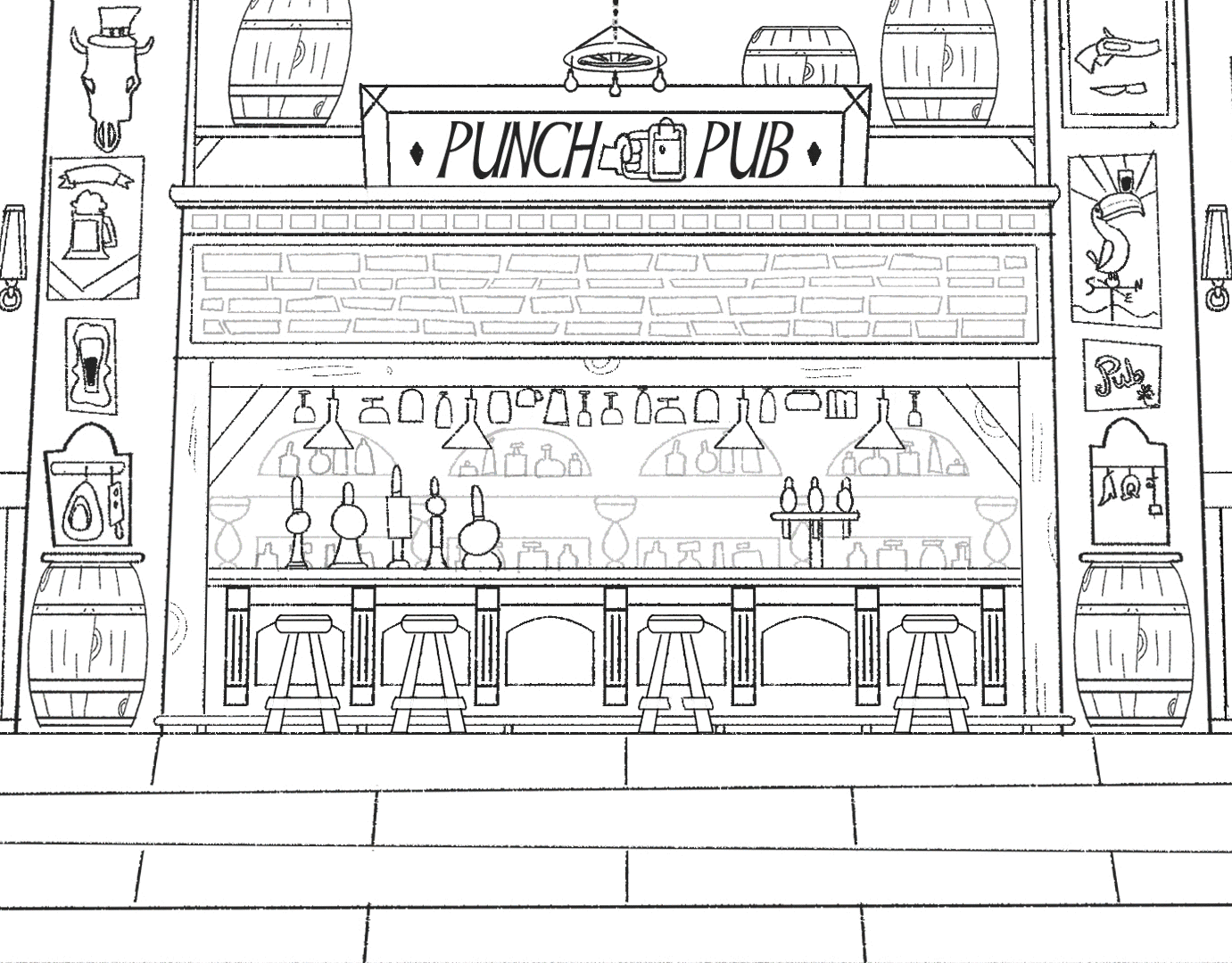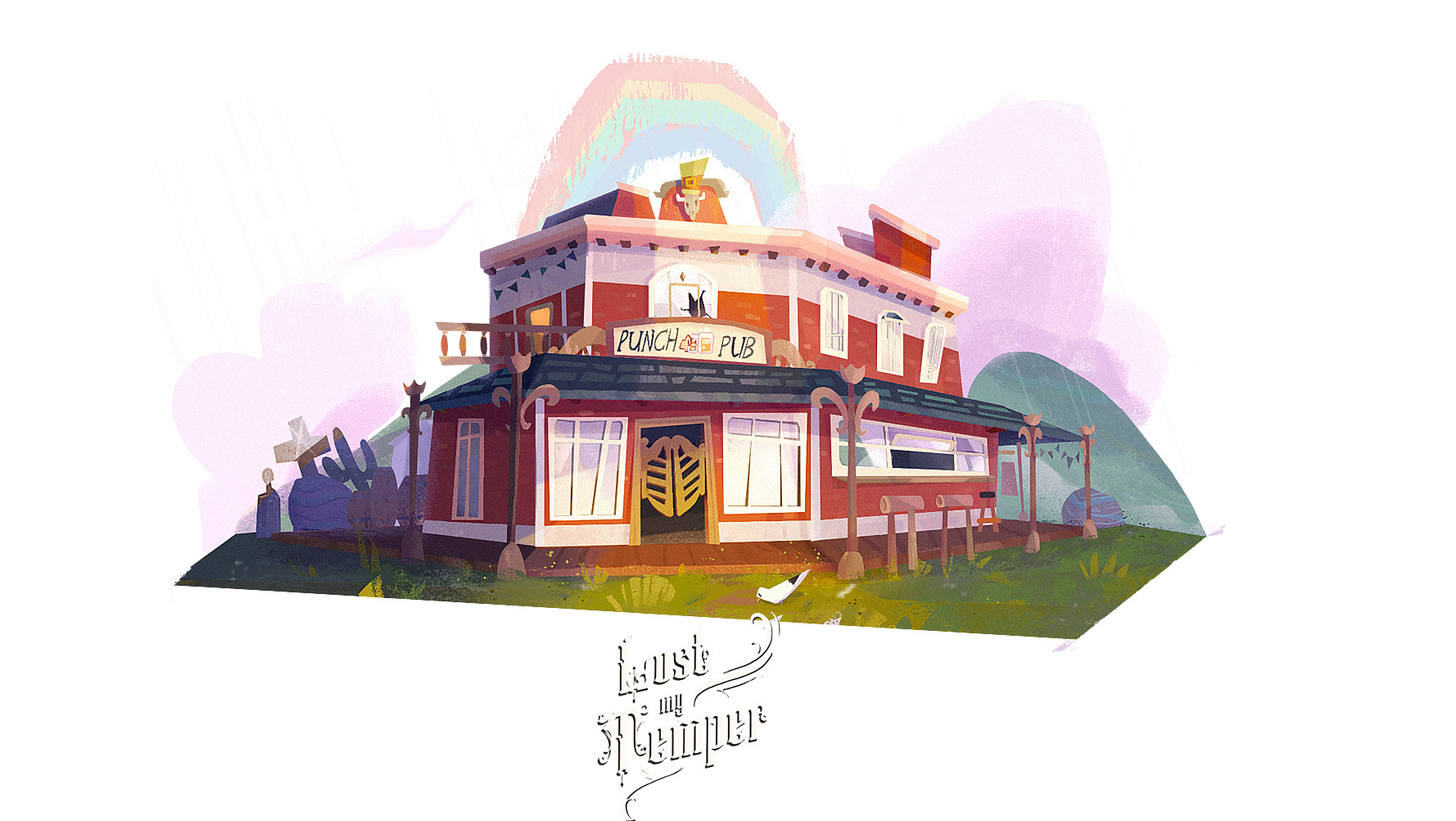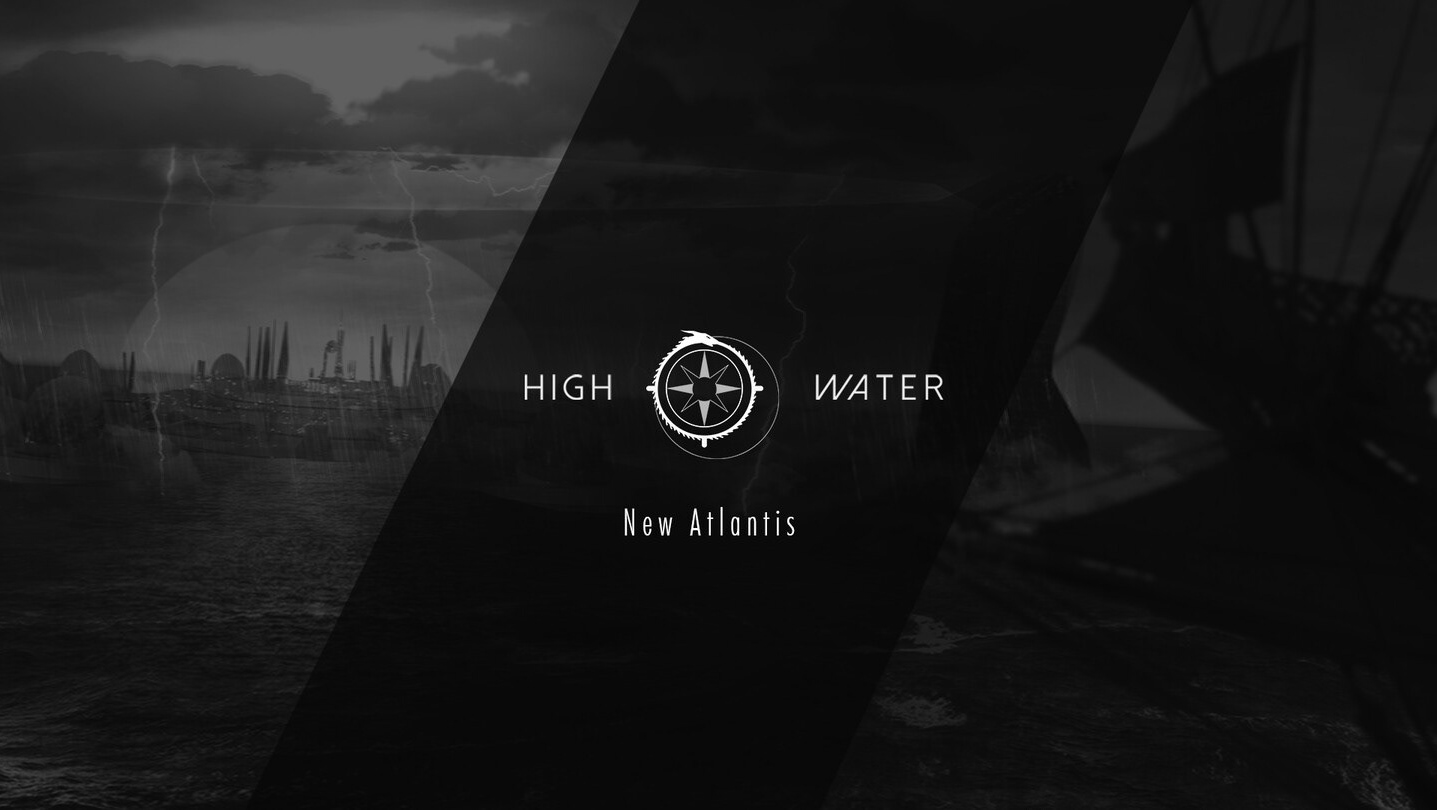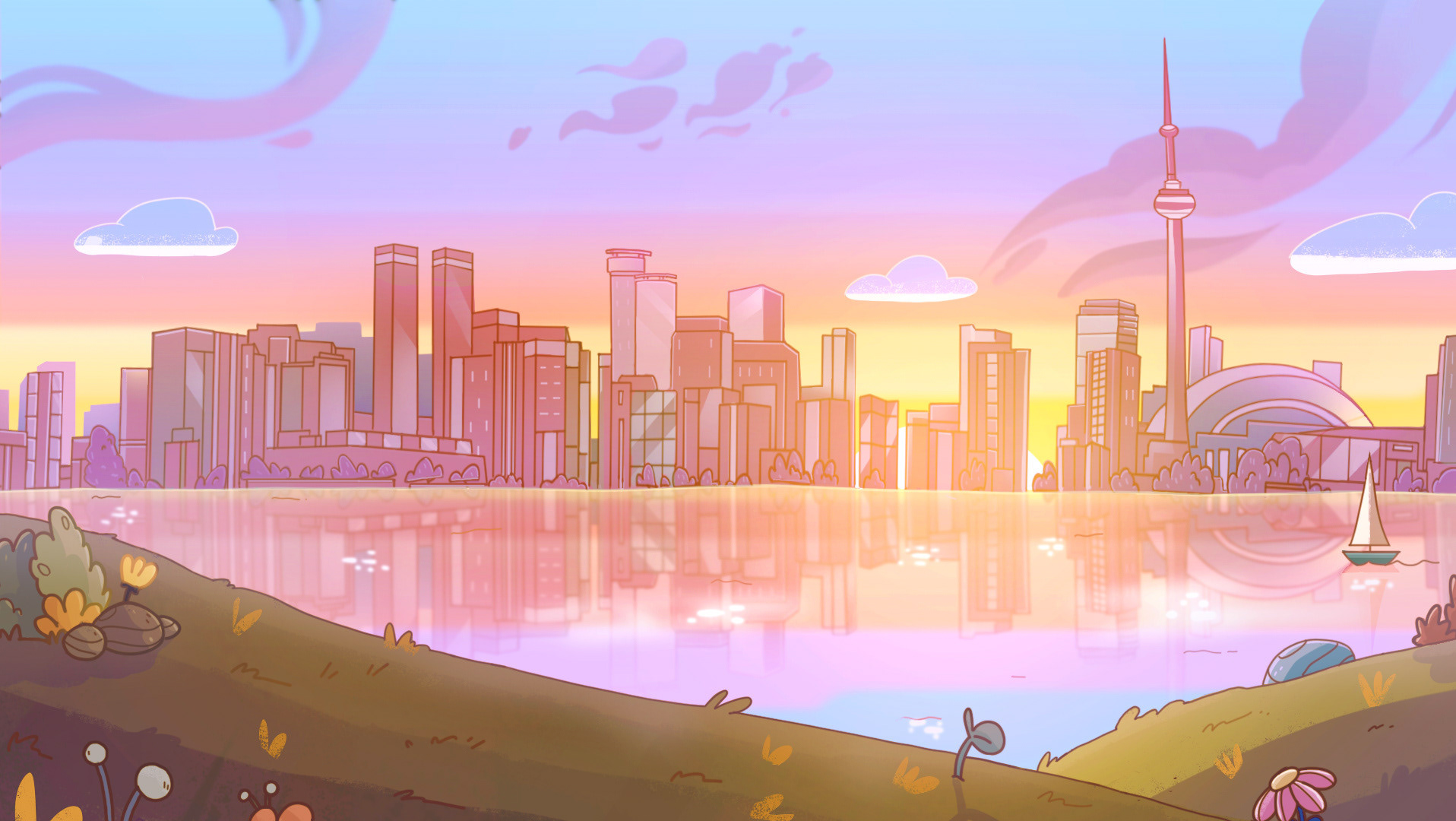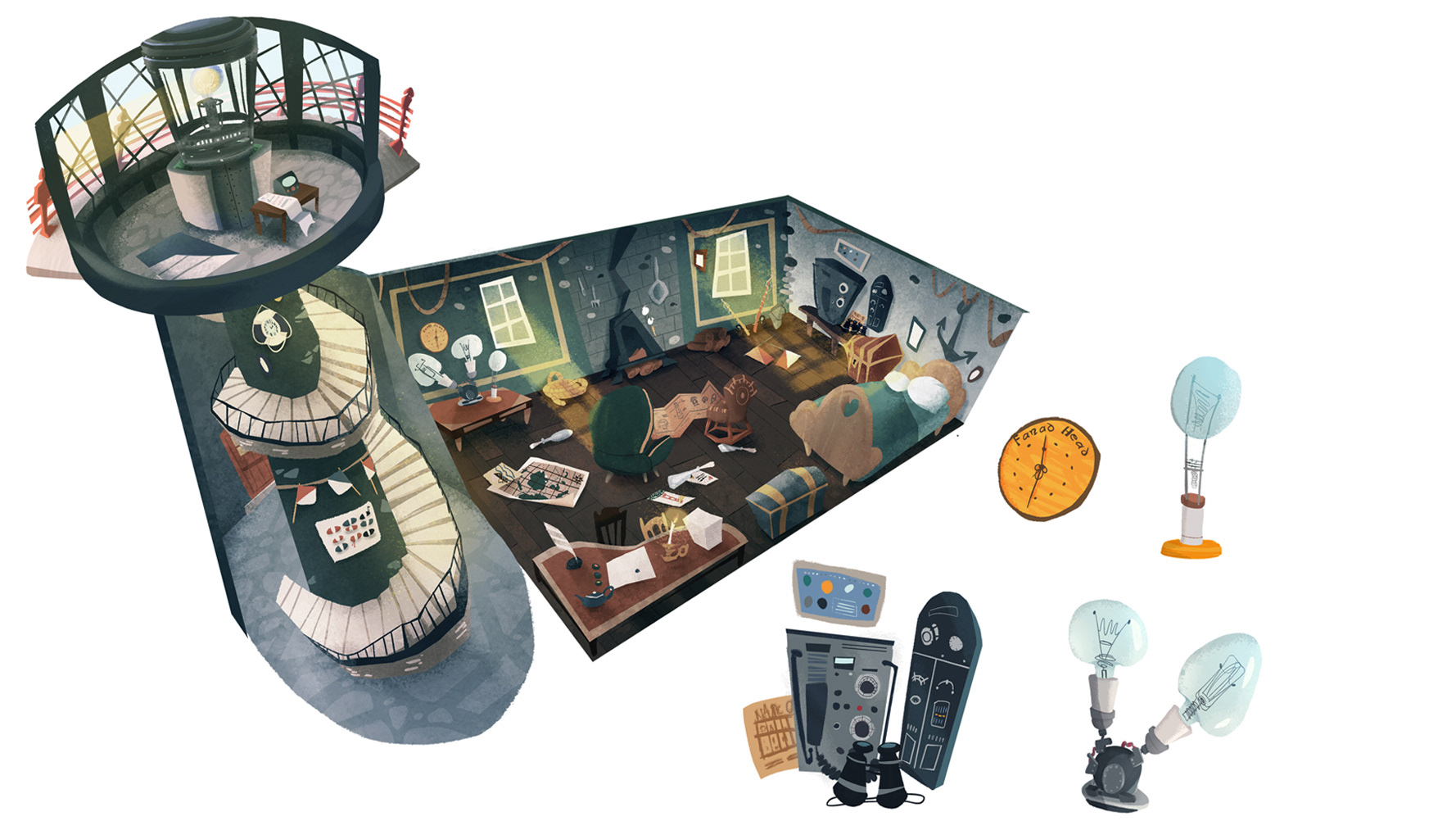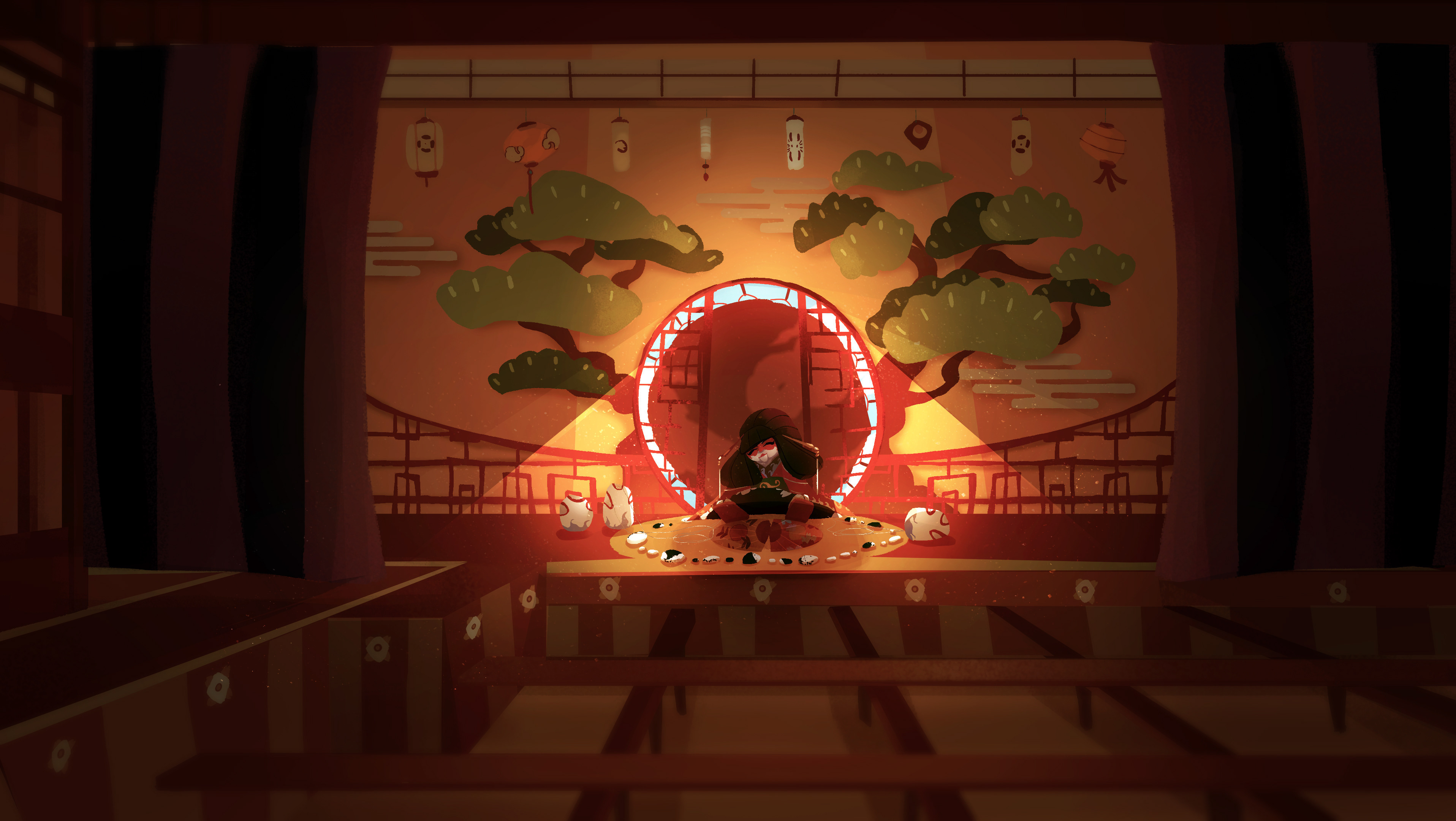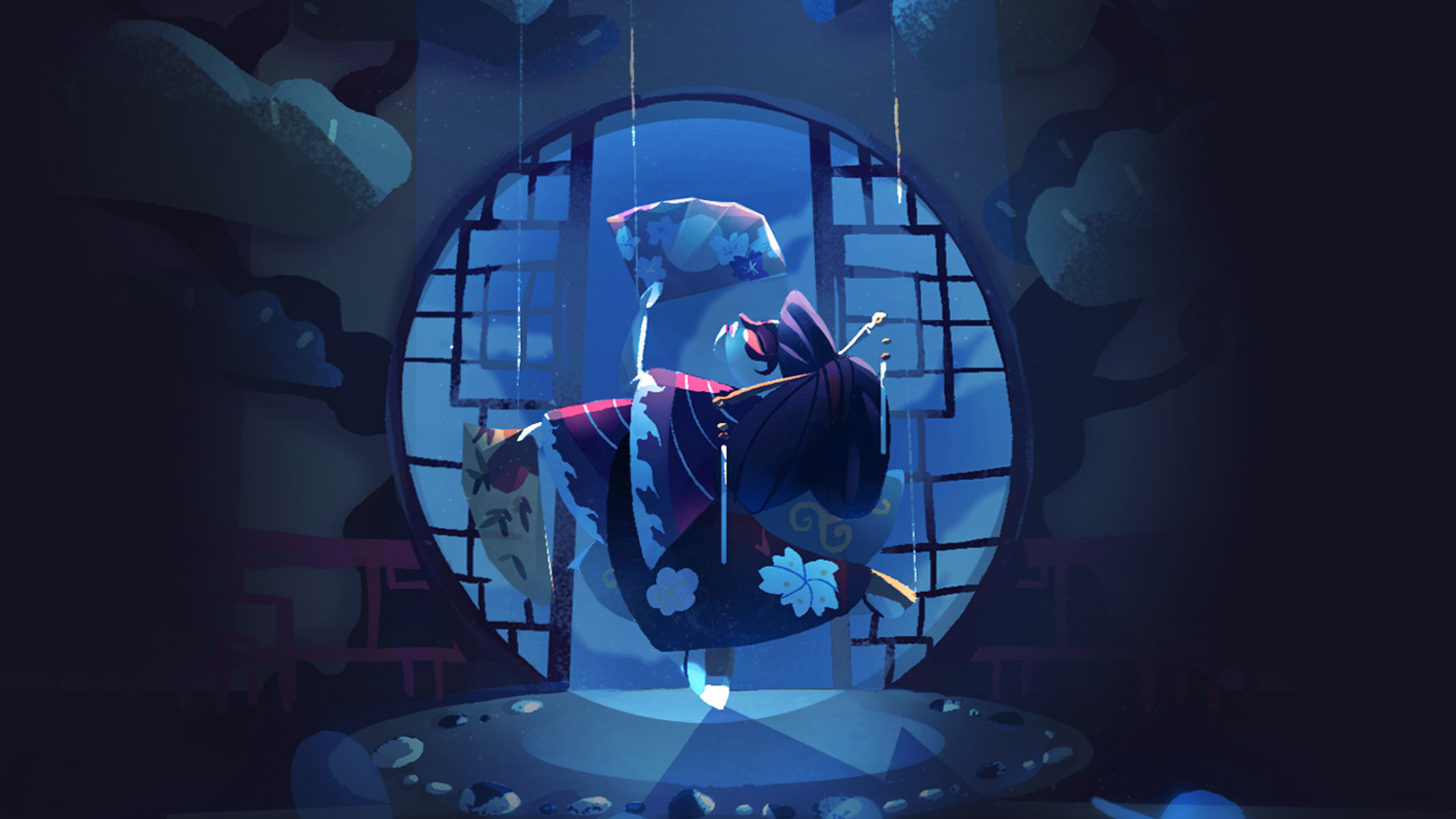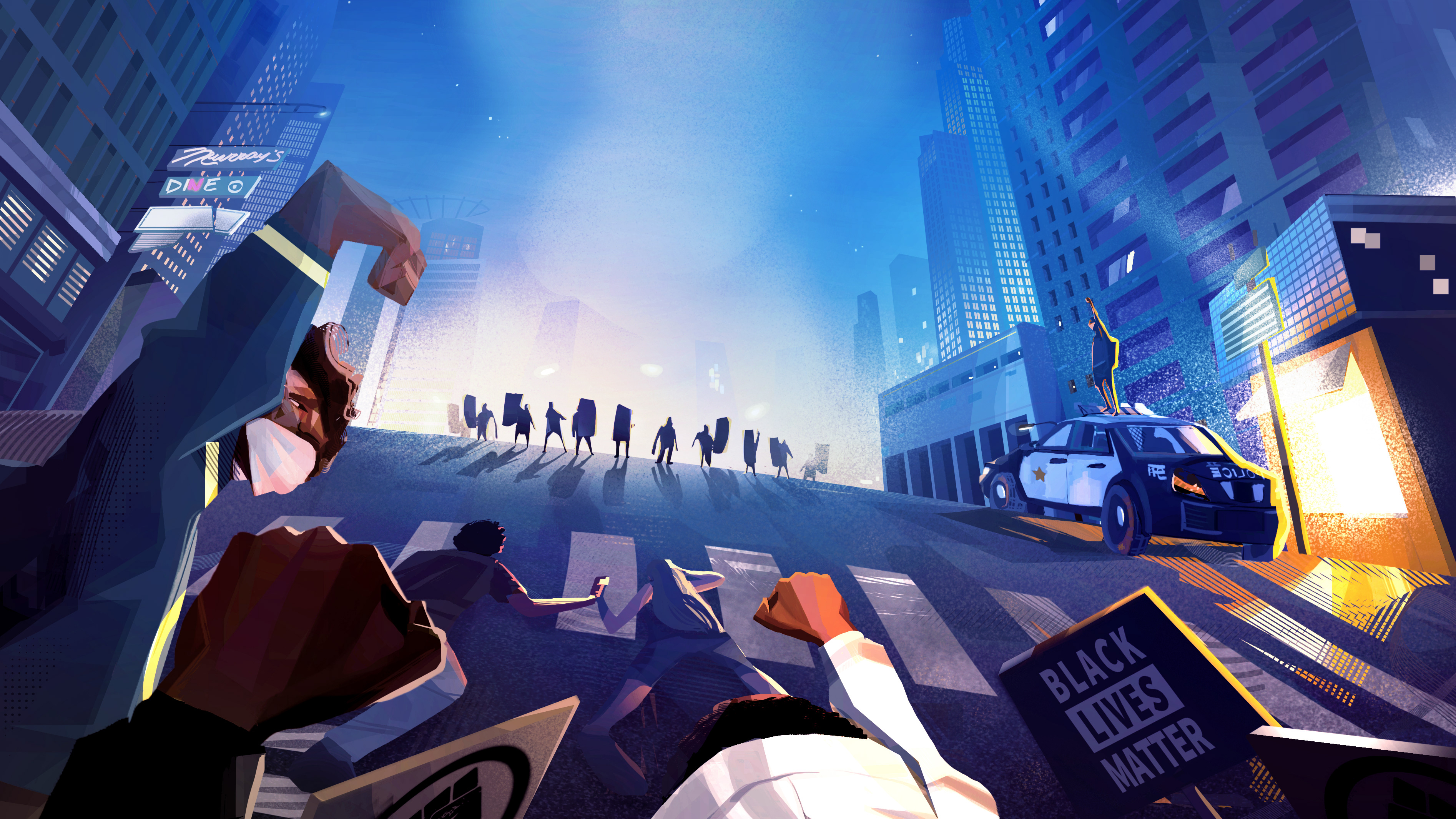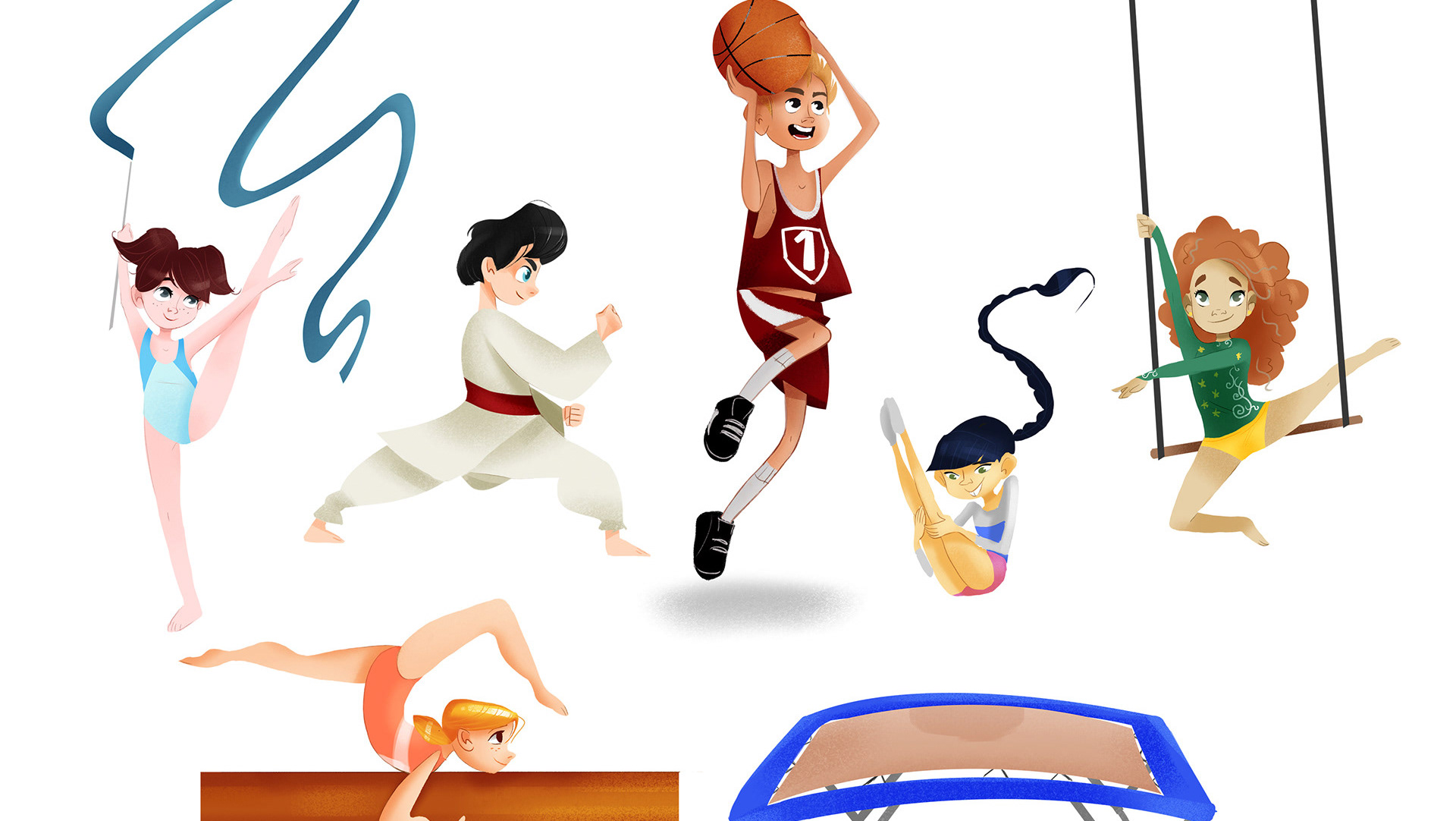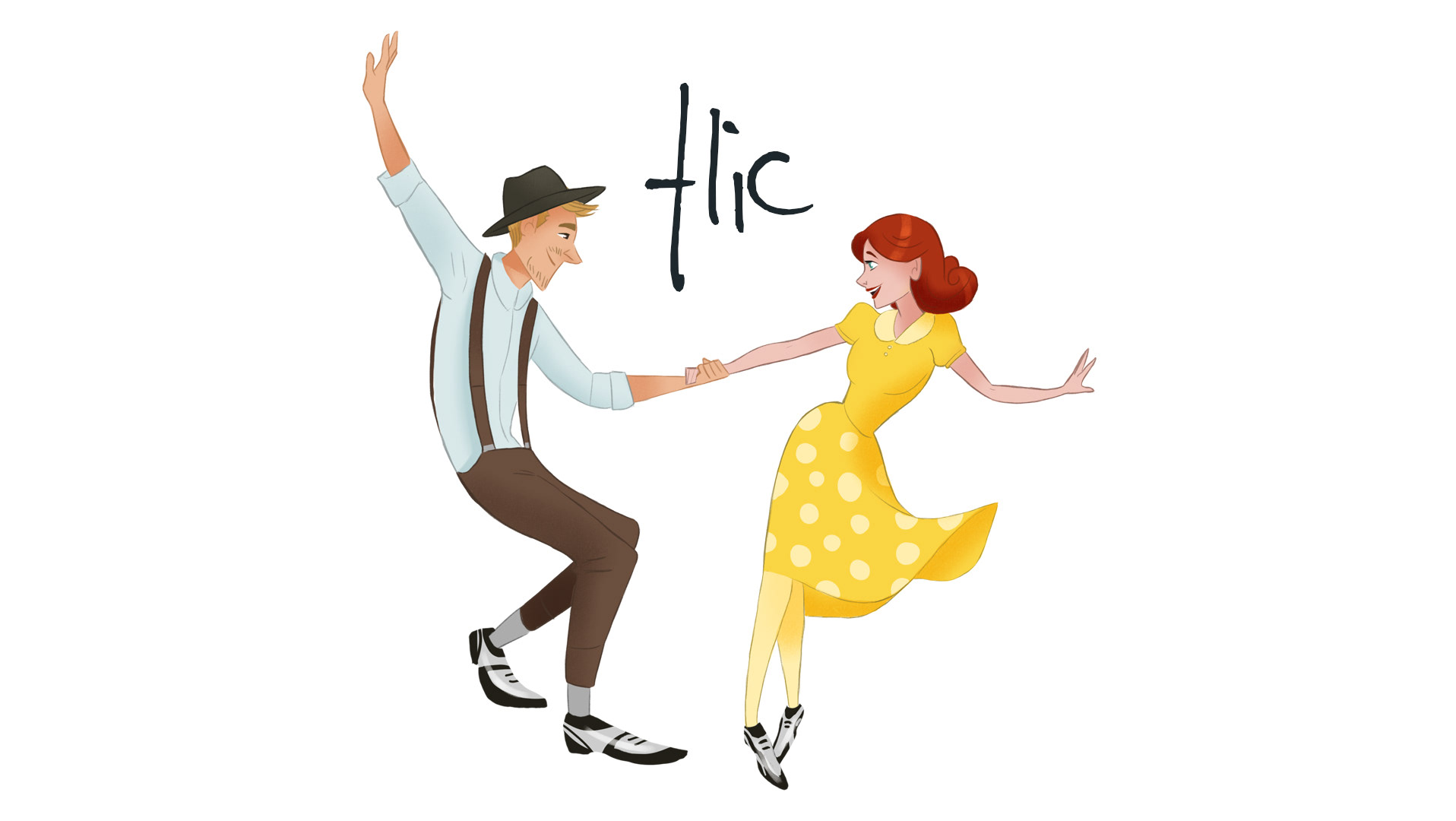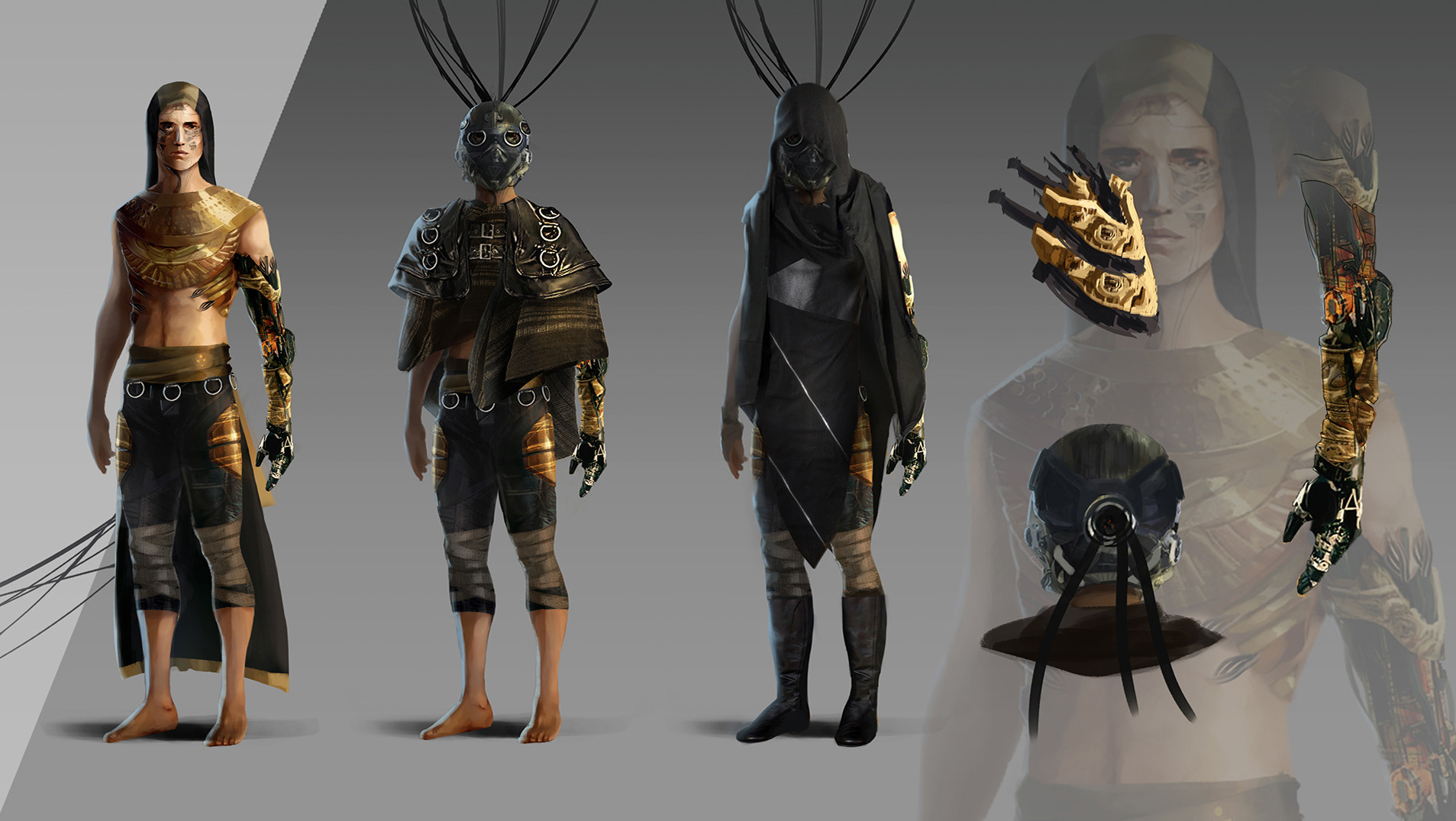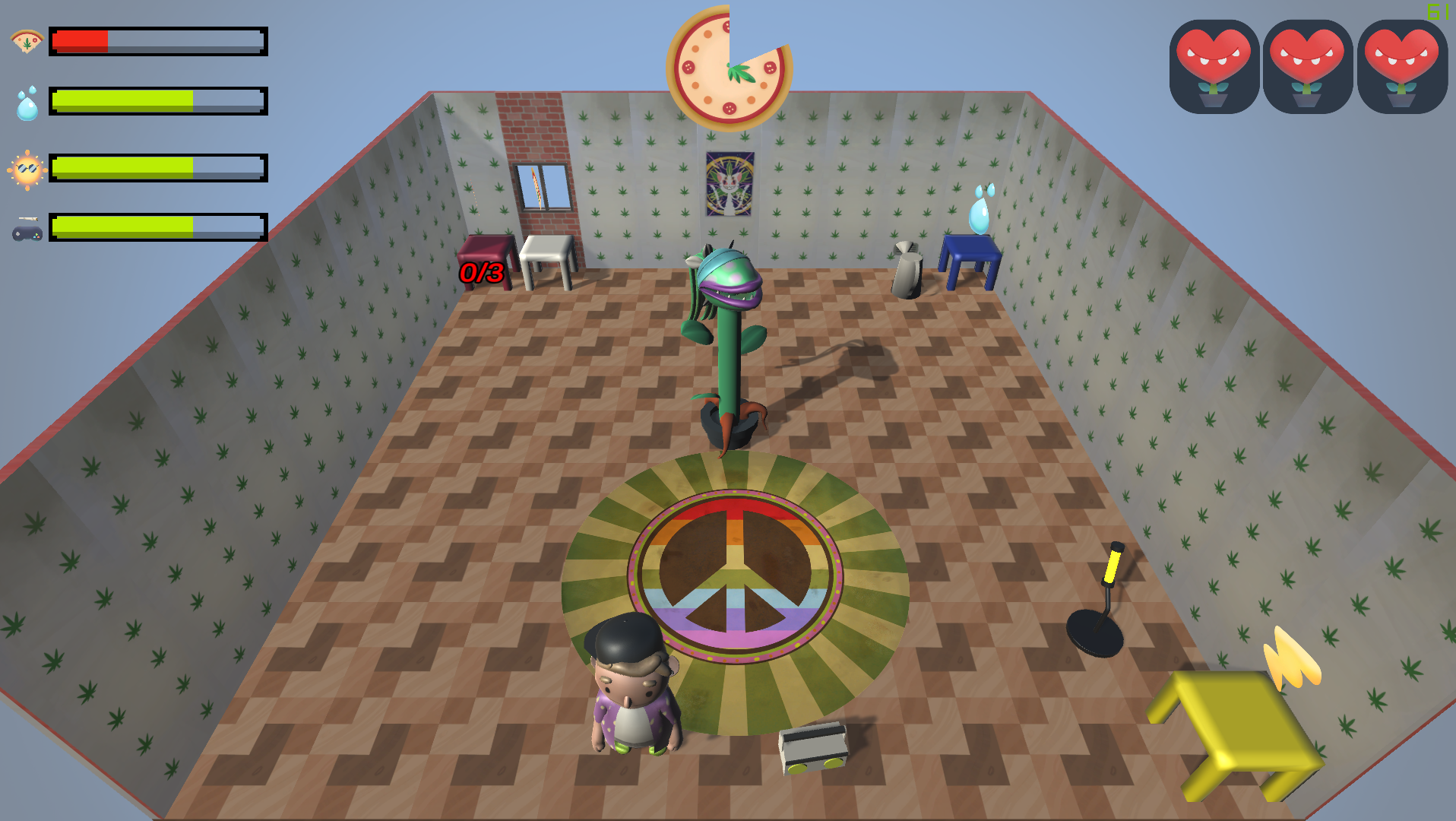CONCEPt ART
The story
eng
Penelope opened her eyes, once again.
They hatched like two soft fresh eggs, gently creaking. The night was still wrapped between her eyelashes. The sun was already flooding her room, waiting just for her.
But to do what?
Penelope just didn’t understand why she had to wake up, once again.
She only knew that her reflection was there, ready to look back at her without answers; it was sleeping in the mirror affixed above her bed, waking with her...But in a different place.
Her bed wasn’t made of sheets, nor of light blankets made of silk embroidered by hands that she had never met; the other Penelope was waking up in a bed of roses, on a mattress of lush vegetation enveloping her with green leaves in summer and red ones in winter.
Or at least, that’s how the real Her imagined the seasons passing by; she hadn’t seen them in a very long time, but only trapped in that glass which slowly became her only window to the world.
The wind blew among the rays of that great season, while ivy and gentle thorns were tangling up around her auburn hair in the reflection, as if they wanted her to stay.
It wasn’t that hard to convince her; she had other reflections to meet, but they would all have the same dull, grey and unreasonably exhausted eyes.
Places could change, but her empty and politely unhappy expression could not.
Places could change, but her empty and politely unhappy expression could not.
She was really well behaved, even if she couldn’t tell anymore when and for who.
Everything that didn’t exist in that enormous house and in its mirror, simply didn’t exist at all. Even time didn’t seem to flow on her fine features, and in that reflection she had the illusion of always being a kid who loved sleeping with the flowers.
Everything that didn’t exist in that enormous house and in its mirror, simply didn’t exist at all. Even time didn’t seem to flow on her fine features, and in that reflection she had the illusion of always being a kid who loved sleeping with the flowers.
She reached out to the curtain of the canopy, pulling it back to let the sun come into her reality too. It kissed her everywhere, on her freckles and on the nightgown embroided with the same care of the sheets. She got up, stretching out of habit and approching the window out of boredom. The usual film of humidity was fogging up the glass, making it impossible to see outside; she passed her hand over it out of habit. Id didn't workk.
She stopeed doing it, out of boredom.
She stopeed doing it, out of boredom.
Maybe there was a time when things weren’t like that, as much as maybe there was a time when she didn’t ask if that was normal...But she had run out of chairs with which she could try to break it, and the bucket she could empty against it was more useful for collecting the little water she needed to stay alive.
She jumped over a couple of broken wooden leg, wondering whether there was a servant in charge of cleaning up that mess. A huge house like that could have needed it, sure. But no. There were only corridors and mirrors. Mirrors which reflected only her and corridors which echoed only her footsteps.
She chose one, walking slowly. She didn't trust the darkness to swallow her movements, if she wasn't careful enough to make them short and close to each other.
It was incredible how with walls so tall nobody found the space for a window; but she could often see drops of water falling from the rooftop, and they were so cold that they seemed to rain directly from the clouds. Penelope wanted to catch them all. She got close to one of her buckets, and she was surprised to find it empty.
It was a sunny day, but she was sure she had heard some roars from the sky during the night, and she was used to finding a lot of scared water drops in the buckets the morning after.
She continued along the corridor, resigning to find the bathroom to wash up. Luckily, in that area of the mansion there was a long shiny mirror. Or rather, the small glow-worms that studded the interior of the cave reflected in the mirror were so shiny that they could even lighten up the corridor.
She looked at herself crossing that cold tunnel in the rocks, wondering if some kind of creature could get out and pass through the mirror. She always felt she wasn’t alone, when she passed there.
But it was in the bathroom that she really felt alone. Alone of that kind of loneliness that takes the colors away from everything, letting you believe you’re the only person to have ever existed on the planet who has ever seen them.
That loneliness which makes you even forget of being that: a person. And the only thing which could help to remind her that she wasn’t a part of the alabaster furniture or a precious marble tile was her reflection, made pale by the cold light that hardly lightened up a space too big to actually be the most intimate one.
“Ghosts can’t see their reflection, but some people’s’ reflection sometimes is a ghost” said a voice in her head, perhaps the voice of someone who had told her those words a long time ago. She opened the chrome brass faucet, from which the water barely dripped after multiple seconds. Shy and opaque as her memories. She put her hands under the flux and lowered her head, rinsing herself off with her eyes shut.
When she opened them she still had her face down, and the first thing that she saw were red drops reflected in the drain plug. She immediately raised her head, searching for herself in one of the multiple unconventional mirrors of the house. The red drops were a bloody mask on her innocent face.
They seemed to gush from a wound on her head that she neither had nor even felt; but when she touched her face and watched the transparent liquids that remained on her hand, she knew that was Penelope in the mirror’s wound.
She remained there staring for some time, becoming always less surprised by her bloody face. She was like that every morning, when she couldn’t find water in the buckets. But she didn’t remember it until she opened the faucet. And everyday the wound reopened, without any intention of burning, nor healing up.
After all, she simply felt to be a rose like those she woke up with, without anyone to catch her or merely watch her wither.
She dried off with a towel folded on the closest shelf, without letting it stain, unlike the the one in the reflection she saw. She could notice some older rings, dried up between the bristles. Apparently there was no servant servitude even on the other side. She could notice some older rings, dried up between the bristles. Apparently there was no servant even on the other side.
Alone in both worlds, she thought while closing the door of that gloomy but terribly perfect place.
She went down the wide spiral staircase, which finally started to let in the sun and do justice to the dimension of the house. The dining room had immense windows, grown like climbing plants, as if ty could for the rest of the architecture. Unfortunately, they were even more foggy than the ones she had in her bedroom. She sat at the long table in the middle of the room, without the least semblance of ceremony.
The solid wood table was set for only one, in the extremity that had its back to a wall one would expect to find the family portraits on. But, just as a remind that she was the only family she had, when she climbed onto a chair to reach the ones below and realized that they were other mirrors, she could only see herself; in one, wearing the elegant and respectable clothes that her mother may have worn into one, in the other the or the female and equally refined ones of the father who should have been sitting at the head of the table, right where she was.
It was only set for her, sure, but it seemed like there were supposed to be ten other people waiting to be served, everyone with had a cup or a glass orbiting them like a satellite.
All empty, but full of reflections and memories of which she could have fed.
She brought the tray and the lid that lay in front of it, the biggest of all, reflecting off it. The image was distorted and made her appear not only deformed, but also quite overweight. Somehow she liked to see herself that way, considering that this life without food, or a family providing it, had made her skeletal.
She opened the lid and, tilting the tray in her direction, she could see herself surrounded by all the sweet food she could have dreamt of having for breakfast; blueberry muffins, apple pie, cherry pie and things even more colorful that she couldn’t even imagine the taste of. She instinctively smelt them, remembering that for her that was feeling full.
She didn’t feel like getting seconds that day, maybe because of the blood she hadn’t lost but that she still felt among her teeth; she put the lid back on, wiped a tear with a napkin and the silence agreed to let her go.
She went up the other staircase, whose curve would have led her to the wing of the palace she loved the most. The pomp turned into elegance in there, the curtains like those of a theatre and the walls like columns that were holding one single, big door: the ballroom was the only place in which she would have never missed the world outside.
As always, she had to use all the strength that her nutritious breakfast didn’t give her to open the oak door of that room; but she was sure her efforts would be repaid when she’d have moved the very long blue curtain too, heavy as the night, in charge of enveloping the huge wall mirror spread across on the whole wall.
She loved to think that it was her house on the outside, and she could see her from the right distance to watch it entirely; her own reflection was smaller than the real her, deformed by a gentle glass that wanted to give her all the possible space to dance. And then she started floating, cradled by a breeze that sounded among the flowering cypresses in the gardens that were framing all the areas of the mansion; a mansion in which she barely walked and crawled through.
Twirls between the columns, somersaults on carpets of leaves, handstands against the trees even if she could really do them without support; that theatre of illusion had taught her a lot, mostly not to give up the hope that, sooner or later, she would find a mirror with a handle to open and enter…
And, right when she was rotating around herself and the same old thoughts ever, she stumbled; in the direction of the wall opposite to the mirror, moving away from the imaginary line along which she usually danced. That was the perfect distance; she couldn’t risk being too small or too big to delude herself she was really there.
Instead, the object she bumped into was even too invisible. She looked behind, to her right; to her left in the mirror, instead of the emptiness that was there as in the rest of the room, she had crashed into the angle of the porch with whom she didn’t think she could interact. An angle of something that curved and then arose, and that appeared to look like a step.
Instead, the object she bumped into was even too invisible. She looked behind, to her right; to her left in the mirror, instead of the emptiness that was there as in the rest of the room, she had crashed into the angle of the porch with whom she didn’t think she could interact. An angle of something that curved and then arose, and that appeared to look like a step.
Even before she could think of how absurd it could be, she raised her foot and put it on the void. Then she did the same with the other, finding herself suspended in mid-air; she decided that, to keep going, she had to stare at her version that was really walking on something, because the fear of flying without physics's permission would risk ruining everything and letting her fall.
And, given how much she was going up, that wouldn’t have been her choice.
The staircase was covered with ivy, so tight she almost couldn't find her legs. She had never noticed it, in fact. That white and sumptuous architecture was so full of details on the inside, that she wouldn't have the time to explore all the outside too.
Assuming it was the same place, of course; she was sure she had never seen the central and elevated area she was going to.
But then she was forced to stop.
The staircase ended on a terrace, tailored between the roof and the central tower; she restlessly walked back and forth, always trying not to look down...But the wrestling between her curiosity and her self-control wouldn’t have lasted long if she hadn’t decided to go to the wall, which seemed to be hiding something behind its ivy curtain...Something shining, and which didn’t seem like it wanted to be hidden at all.
The sensation that led her to rip those branches was the same that had made her move the mirror’s curtain the first time.
And it ended in the same way; her reflection was there.
But inside the reflection itself.
In the right moment they met, as if reality couldn’t stand all those versions of Penelope together, she wasn’t looking at herself from the ballroom anymore; her reflection in the second mirror had her conscience, now. Her real eyes were thrown on the other side, and she was looking at herself on the terrace.
The only question was: from where?
The only question was: from where?
She looked around, confirming that she had no clue which room it was. She couldn’t find a memory of her life in it, and maybe neither the room itself knew why it had been built; dark marble, empty, enlightened by a spectral light that bounced from the semi-obscured windows to the mirror.
It was reflecting a distant sunset, as if Penelope must have taken hours to cross it; as if her reflection in the reflection belonged to another place, and also to another time.
She walked in that room, which was as long as a corridor, realizing that the only thing that mattered was to reach the door at the end: the only white, different thing, that was desperately looking for Penelope and her astonished and glazed eyes. It was half-closed, maybe left like that by some visitor she didn’t have the chance to meet, or some of her other reflections who already got lucky enough to escape.
She walked in that room, which was as long as a corridor, realizing that the only thing that mattered was to reach the door at the end: the only white, different thing, that was desperately looking for Penelope and her astonished and glazed eyes. It was half-closed, maybe left like that by some visitor she didn’t have the chance to meet, or some of her other reflections who already got lucky enough to escape.
She opened that door, finding an even more aseptic room than the previous one, so empty that she could even hear the echo of her thoughts and of her heart. The beats that, after a long time, were giving her a new rhythm on which to live and dance.
She approached the last mirror, in the middle of the room, illuminated by a beam of light that rolled out from the top and that drew her in like a moth.
Penelope closed her eyes, once again.
She didn’t know if ghosts saw see their reflections, but she didn’t see it.
She didn’t know if she was a ghost, but she couldn’t hear the beats of her heart anymore.
She simply disappeared, like a moth who danced too close to the light.
The story
ITA
Penelope aprì gli occhi, ancora una volta.
Si schiusero come due uova tenere e fresche, scricchiolando lievemente. La notte era ancora avvinghiata fra le sue ciglia. Il sole, però, inondava già la stanza e aspettava solo lei.
Per fare cosa, poi?
Penelope non sapeva perché alzarsi, ancora una volta.
Sapeva che il suo riflesso era lì, pronto a ricambiare il suo sguardo senza risposte; dormiva anch’esso nello specchio affisso sopra il suo letto, svegliandosi con lei...Ma in un posto diverso.
Il suo letto non era fatto di lenzuola, né di leggere copertine di seta ricamate da mani che non aveva mai conosciuto; l’altra Penelope si svegliava in un letto di rose, su un materasso di vegetazione rigogliosa che l’avvolgeva con foglie verdi d’estate e rosse d’inverno.
O almeno, così la vera lei immaginava passassero le stagioni; era da tanto tempo che non le vedeva trascorrere, se non intrappolate in quel vetro che, man mano, era diventato la sua sola finestra sul mondo.
Il vento soffiava fra i raggi di quella bella stagione, mentre edera e rovi gentili si attorcigliavano attorno ai capelli ramati del suo riflesso, come per farlo restare lì. Non le serviva molto per farsi convincere; aveva altri riflessi da incontrare, ma avrebbero ricambiato tutti lo stesso sguardo spento, grigio e irragionevolmente stanco.
I posti cambiavano, ma la sua espressione vuota e garbatamente infelice no.
Era stata bene educata, anche se ormai non ricordava quasi più quando e da chi. Tutto ciò che non esisteva in quell’enorme casa e nei suoi specchi, semplicemente, non esisteva. Anche il tempo sembrava non scorrere sui suoi lineamenti delicati, lasciando che, almeno nel suo riflesso, avesse sempre l’aspetto di una ragazzina che ama dormire fra i fiori.
Allungò una mano e scostò la tenda del baldacchino, lasciando che il sole entrasse anche nella sua realtà. La baciò ovunque, sulle lentiggini e sulla camicia da notte ricamata con la stessa cura delle lenzuola. Si alzò, stiracchiandosi per abitudine e avvicinandosi alla finestra per noia. La solita patina di umidità ne appannava il vetro in modo impenetrabile, impedendole di vedere al di fuori; ci passò sopra la mano per abitudine. Smise di farlo nel vedere che non serviva, per noia.
Forse c’era stato un tempo in cui non era così, come forse c’era stato un tempo in cui si chiedeva se fosse normale...Ma aveva finito le sedie con cui provare a infrangerlo, e i secchi che ci svuotava contro le servivano per raccogliere la poca acqua piovana che le occorreva per vivere.
Saltò un paio di gambe di legno spezzate, chiedendosi se fosse mai esistita una servitù incaricata di sistemare quel disordine. Una casa così grande ne avrebbe avuto bisogno, certo. Eppure no. C’erano solo corridoi e specchi. Specchi che riflettevano solo lei e corridoi che risuonavano solo dei suoi passi.
Ne scelse uno, camminando lentamente. Non si fidava dell’oscurità che inghiottiva i suoi movimenti, se non era abbastanza prudente dal farli brevi e ravvicinati. Incredibile come in pareti così alte non avessero trovato spazio per costruire una finestra; ma dal soffitto, spesso, scendevano gocce così fredde che sembravano cadere direttamente dalle nuvole, e Penelope le voleva catturare tutte.
Si avvicinò ad uno dei suoi secchi, stupendosi di trovarlo completamente vuoto. Era una bella giornata, ma era sicura di aver sentito dei ruggiti venire dal cielo durante la notte, e quando li sentiva trovava sempre molte gocce impaurite il mattino seguente.
Proseguì lungo il corridoio, arrendendosi a cercare il bagno per potersi dare una sciacquata. Per fortuna in quell’ala della villa c’era un lungo specchio luminoso. O meglio, le piccole lucciole che costellavano l’interno della grotta che rifletteva erano così luminose da riuscire a rischiarare persino il corridoio. Si guardò attraversare quel freddo tunnel nella roccia, chiedendosi se eventuali creature avrebbero potuto uscirne e oltrepassare lo specchio. Aveva sempre la sensazione di non essere sola, mentre passava di lì.
Ma in bagno sì, che si sentiva sola. Sola di quella solitudine che toglie i colori a tutto e ti fa credere di essere l’unica persona mai esistita sul pianeta ad averli visti. Quella solitudine che ti fa dimenticare di esserlo, una persona. E l’unica cosa a ricordarle di non essere una parte dell’arredo di alabastro o una piastrella di marmo pregiato era il suo riflesso, reso pallido dalla luce fredda che illuminava a fatica uno spazio fin troppo grande per dover essere in realtà il più intimo.
“I fantasmi non possono vedere il loro riflesso, ma il riflesso di certe persone è spesso un fantasma” disse una voce nella sua testa, che forse era la voce di qualcuno che gliel’aveva detto molto tempo prima. Aprì il rubinetto d’ottone cromato, la cui acqua singhiozzò a fatica dopo svariati secondi. Timida e opaca quanto i suoi ricordi. Vi infilò sotto le mani e chinò la testa, dandosi una bella sciacquata a occhi chiusi.
Quando li riaprì aveva ancora il volto all’ingiù, e la prima cosa che vide furono delle gocce rosso scuro riflesse nel tappo dello scarico. Alzò il capo di scatto, cercandosi in quello che sapeva non essere l’unico specchio normale della casa.
Le gocce rosse erano una maschera di sangue sul suo volto innocente. Sembravano sgorgarle da una ferita sulla testa che non aveva né sentiva; ma, quando si toccò il volto e guardò il liquido trasparente che le rimaneva sulla mano, capì che quella ferita forse era la Penelope dello specchio ad averla.
Rimase a fissarsi qualche istante, stupendosi sempre meno del suo volto insanguinato. Era così ogni mattina, quando non trovava acqua nei secchi in corridoio. Solo che non se lo ricordava finché non apriva il rubinetto. E ogni giorno la ferita si riapriva, senza alcuna intenzione né di bruciare né di cicatrizzarsi.
In fondo le sembrava solo di essere una delle rose fra cui si svegliava, senza che nessuno venisse mai a coglierla o a vederla appassire.
Si asciugò con un panno che era piegato sul ripiano, non lasciando i segni che invece macchiarono pesantemente quello preso dal suo riflesso. Sembravano esserci altri aloni più vecchi, rinsecchiti fra le setole del tessuto. A quanto pare nemmeno dall’altra parte c’era una servitù che pensava a queste cose.
Sola in entrambi i mondi, pensò mentre richiudeva la porta di quel posto tetro e terribilmente perfetto.
Scese le ampie scale elicoidali, che finalmente iniziavano a bagnarsi di luce e a rendere giustizia alla grandezza della casa. La sala da pranzo aveva delle finestre immense, forse cresciute così tanto, come piante rampicanti, per compensare il resto dell’architettura. Peccato solo fossero ancora più appannate di quelle che aveva in camera. Si sedette al lungo tavolo che stava al centro della stanza, senza fare i complimenti a nessuno.
Sul piano di legno massiccio c’era apparecchiato solo per uno, nell’estremità che dava le spalle a una parete su cui ci si aspetterebbe di trovare i quadri di famiglia. Ma, giusto a rimarcare che la sua famiglia fosse solo lei, quando provava ad arrampicarsi su una sedia per guardare quelli più bassi e rendersi conto che erano di nuovo degli specchi, riusciva a vedere solo sè stessa; in uno con gli abiti da signora elegante e rispettabile che avrebbe potuto indossare sua madre, in un altro quelli maschili e ugualmente raffinati del padre che avrebbe dovuto sedersi a capotavola, al suo posto.
Era apparecchiato solo per lei, sì, ma come se avessero comunque dovuto servire dieci persone; era circondata da almeno una ventina di piatti e scodelle di dimensioni diverse, ed ognuno aveva attorno come satelliti un calice o un bicchiere.
Tutti vuoti, ma pieni di riflessi e di ricordi di cui poteva nutrirsi.
Portò a sé il vassoio col coperchio che aveva davanti, il più grande di tutti, specchiandocisi sopra. L’immagine era distorta e la faceva apparire non solo deforme, ma decisamente sovrappeso. Le piaceva comunque vedersi così, dato che quella realtà senza cibo o una famiglia che glielo procurasse l’aveva resa scheletrica.
Aprì il coperchio, e inclinando verso di lei il vassoio poté vedersi circondata da tutti i dolci che le sarebbe piaciuto assaporare per colazione; muffins ai mirtilli, torta di mele, crostata di ciliegie e cose ancora più colorate di cui non riusciva a immaginare nemmeno il sapore. Annusò istintivamente, ricordandosi che per lei quella era la sazietà. Quel giorno non aveva voglia di fare il bis, dato che sentiva ancora fra i denti il sapore del sangue che non aveva perso; richiuse il coperchio, si pulì una lacrima col tovagliolo e il silenzio acconsentì alla sua richiesta di alzarsi.
Salì l’altra scalinata, la cui curva l’avrebbe condotta nell’ala della casa che più preferiva. Lì lo sfarzo diventava eleganza, le tende sipari e le pareti colonne che reggevano un’unica grande porta: la sala di danza era il solo posto in cui non sentiva la mancanza del mondo esterno.
Come sempre, dovette usare tutta la forza che le sue colazioni sostanziose non le davano per aprire il portone in quercia di quella sala; ma sapeva che le sue fatiche sarebbero state ripagate non appena avesse spostato anche quella lunghissima tenda blu, pesante come la notte, incaricata di avvolgere l’enorme specchio a muro che si spalmava sull’intera parete. Le piaceva pensare che quella fosse la sua casa dall’esterno, vista da abbastanza lontano per poterla osservare tutta; il suo stesso riflesso era più piccolo di lei, deformato da un vetro gentile che voleva darle tutto lo spazio possibile per danzare. E allora lei iniziava a saltare e fluttuare, cullata da una brezza che suonava fra i cipressi e i cespugli in fiore del bel giardino che incorniciava tutte le aree della villa; una villa in cui, di solito, strisciava e camminava a malapena.
Girotondi dietro le colonne, capriole su tappeti di foglie, verticali contro gli alberi ma che in realtà riusciva a fare senza sostegno; quel teatro d’illusioni le aveva insegnato moltissimo, soprattutto a non abbandonare la speranza che, prima o poi, avrebbe trovato uno specchio con una maniglia da aprire per attraversarlo…
E, proprio mentre roteava su sé stessa e sui pensieri di sempre, inciampò; verso la parete opposta allo specchio, allontanandosi dalla linea immaginaria lungo cui era solita ballare. La distanza perfetta dalla casa era quella; non avrebbe voluto rischiare di essere troppo piccola o troppo grande per riuscire a illudersi di essere lì davvero.
E, invece, era solo troppo invisibile l’oggetto contro cui le sembrava di essere andata a sbattere. Guardò dietro di sé, verso la sua destra; alla sua sinistra nello specchio, invece del vuoto che c’era lì come nel resto della stanza, aveva urtato un angolo del portico con cui non pensava di poter interagire. Un angolo di qualcosa che rientrava e poi saliva, e che sembrava a tutti gli effetti un gradino. Ancora prima di pensare a quanto fosse assurdo farlo, aveva già alzato il piede e lo aveva posato sopra al vuoto. Poi fece lo stesso con l’altro, trovandosi sospesa a mezz’aria; decise che, per continuare, avrebbe dovuto fissare la sua versione che nello specchio stava davvero camminando su qualcosa, perché la paura di star volando senza il permesso della fisica avrebbe potuto rovinare tutto e lasciare che cadesse all’improvviso.
E, visto quanto stava salendo, non sarebbe stato affatto il caso.
La scalinata era coperta dall’edera, così fitta che quasi non le sembrava di avere le gambe. Non l’aveva quasi mai notata, in effetti. C’erano così tanti dettagli in quell’architettura bianca e sontuosa che nemmeno l’eternità da cui le sembrava di essere intrappolata all’interno le sarebbe bastata per esplorare tutto l’esterno. Sempre che della stessa villa si trattasse; e la zona verso cui stava andando, così centrale e sopraelevata, non credeva di averla nemmeno mai visitata.
Eppure, a un certo punto, fu costretta a fermarsi.
La scalinata terminava su una terrazza, ritagliata fra un tetto e la torre centrale; camminò avanti e indietro, irrequieta, cercando sempre di non guardare in basso...Ma il braccio di ferro fra la sua curiosità e il suo autocontrollo non sarebbe durato molto se non avesse deciso di dirigersi verso la parete; la quale, avvolta da un sipario di edera, sembrava voler nascondere qualcosa...Qualcosa che luccicava, e che sembrava non voler essere nascosta affatto.
La sensazione che la portò a strappare quei rami fu la stessa che la prima volta la indusse a scostare la tenda blu che nascondeva lo specchio.
E, infatti, la storia fu la stessa; di nuovo il suo riflesso.
Ma dentro il riflesso stesso.
Nell’esatto istante in cui si incontrarono, come se la realtà non potesse sopportare tutte quelle versioni di Penelope assieme, non si stava più guardando dalla sala da ballo; era il riflesso nel secondo specchio ad avere la sua coscienza, ora. I suoi veri occhi furono scaraventati dall’altra parte, e stava guardando se stessa sul terrazzo. La domanda era solo una: da dove?
Si guardò attorno, avendo conferma del fatto che non aveva idea di che stanza della casa fosse. Non riusciva a trovare un ricordo in quel posto, e forse nemmeno lei sembrava sapere perché fosse stata costruita; di marmo nero, vuota, illuminata dalla luce spettrale che rimbalzava dalle finestre semi oscurate allo specchio. Rifletteva ormai un tramonto distante, come se Penelope avesse impiegato ore ad attraversarlo; come se il riflesso nel riflesso appartenesse a un altro tempo e non solo a un altro luogo.
Camminò in quella stanza lunga come un corridoio, rendendosi conto che l’unica cosa a contare era arrivare alla porta che stava in fondo: l’unica cosa bianca, diversa, che cercava disperatamente l’attenzione di Penelope e dei suoi occhi sempre più increduli e vitrei. Era socchiusa, chissà se lasciata aperta da qualche visitatore che non aveva avuto la fortuna d'incontrare, o da qualche suo riflesso che aveva già avuto la fortuna di scappare.
La spalancò, trovandosi in una stanza ancora più asettica di quella precedente, talmente vuota che riusciva quasi a sentire l’eco dei suoi pensieri e del suo cuore. I battiti che, dopo tanto tempo, le davano nuovamente un ritmo su cui vivere. Su cui ballare.
Si avvicinò all’ultimo specchio, al centro della stanza, illuminato da un fascio di luce che si srotolava dal soffitto e che l’attirava a sé come una falena.
Penelope chiuse gli occhi, ancora una volta.
Li riaprì.
Non sapeva se i fantasmi vedevano il proprio riflesso, ma lei non lo vide.
Non sapeva se era un fantasma, ma non sentiva più i battiti del suo cuore.
Semplicemente, come una falena che ha ballato troppo vicino alla luce, scomparve.
